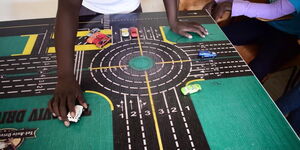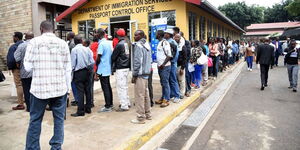Election results manipulation isn't exactly new in Kenya, but the various ingenious ways in which candidates went about to secure victory has evolved over time.
During the 1969 general elections, former President Mwai Kibaki 's agents reportedly switched off the lights as the votes were being tallied and literally ran away with ballot boxes to avoid what would have been an embarrassing defeat.
Mr Kibaki was vying for the position of councillor of the then Eastlands ward in Nairobi's Bahati estate.
However, his opponent, a lady named Jael Mbogo, proved to be quite formidable despite being seen by most as a mere underdog.
She took a surprise lead and was set for certain victory before a bizarre turn of events robbed her of what had already been reported by the BBC as the most shocking victory.
“I was so far ahead in early vote counting that even the BBC reported that a young woman had felled a government minister. Kibaki robbed me of victory,” Ms Mbogo revealed to the Observer during a 2008 interview.
Reports published by the Daily Nation revealed that Kibaki's agents at the polling station on realizing the then Finance and Economics minister was set for a humiliating defeat decided to perform the heinous act.
Ms Mbogo, who was the second Maendeleo ya Wanawake chairperson after Phoebe Asiyo, also revealed that she witnessed her ballot papers being burnt just outside the polling station after the lights mysteriously went out.
Kibaki reportedly survived the scare with an advantage of 111 votes and switched his base to his rural home in Othaya, Nyeri, thereafter.
Despite participating in 1969, 1974 and 1997 elections, Ms Mbogo, one-time secretary general of Freedom from Hunger, founder member of the League of Women Voters and Ford Kenya’s national organising secretary, never won an elective post.
In an era characterized by rampant rigging, various incidents were reported including the hijacking of potential candidates and their releases after the hour of midday had passed.
This was so as to take advantage of the archaic rule which stipulated that aspirants needed to present their nomination papers at the registrar's office before midday, with lateness resulting in an automatic disqualification.












